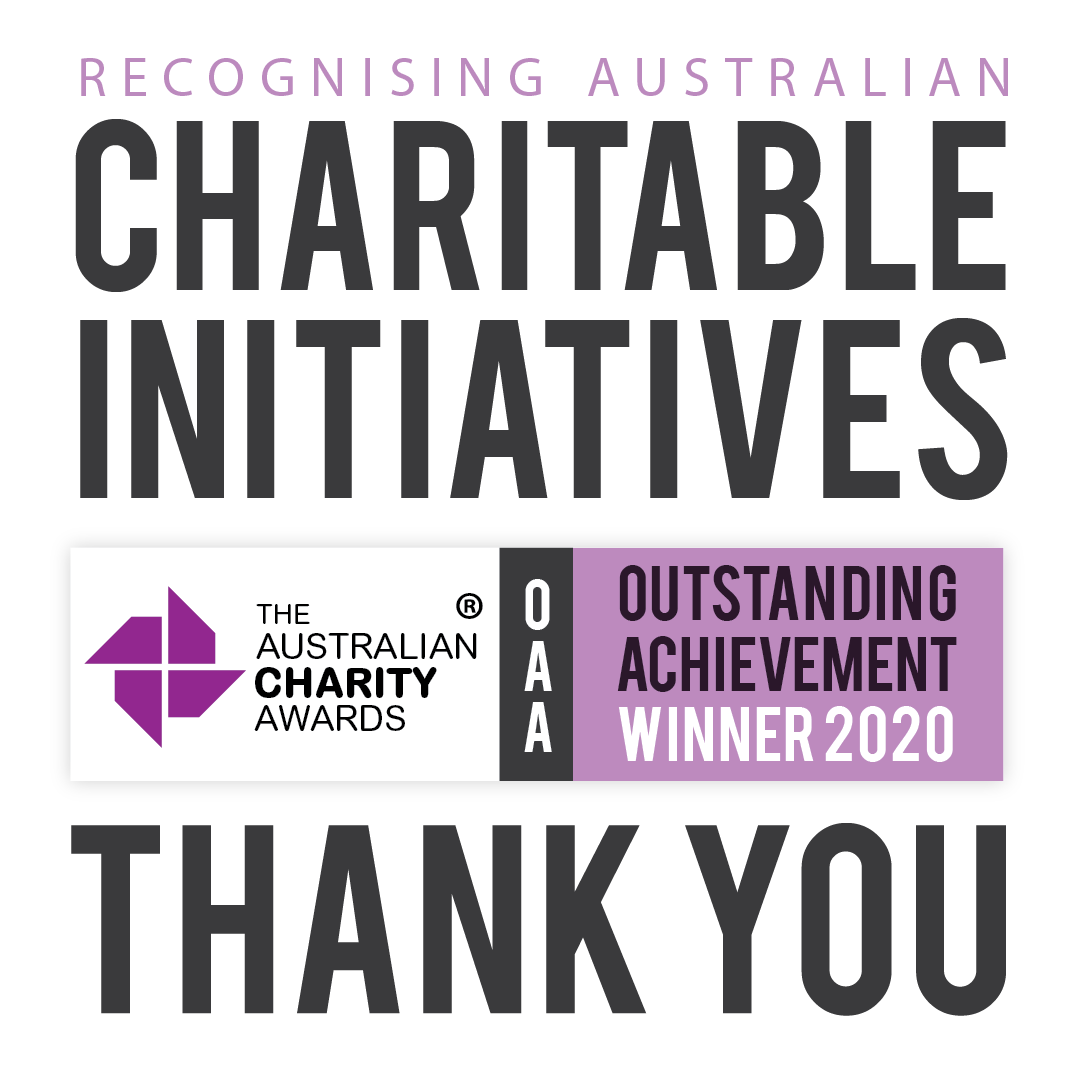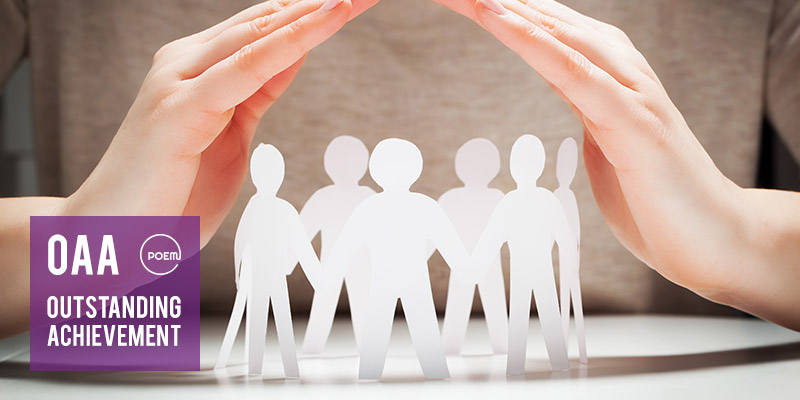Community Legal Centres Queensland
Community Legal Centres Queensland has been recognised for Outstanding Achievement in The Australian Charity Awards 2020. The Australian Charity Award for Outstanding Achievement [OAA] recognises charitable organisations that have achieved outstanding results through initiatives that have significantly benefited charitable causes.
Community legal centres are independent, community-run organisations that aim to provide legal help to anyone who asks. There are more than thirty of these organisations across Queensland providing legal advice and ongoing representation and support. Community Legal Centres Queensland is the state-based peak body representing these Legal Centres. Community legal centres help people who can’t afford a lawyer and are not eligible for legal aid. Community legal centres is committed to helping people with a wide range of problems including family violence, relationship breakdown, family law, debt, consumer problems, tenancy disputes and employment issues. Community legal centres work to prevent problems arising through legal education and contributing to fair laws and policies.
Client data collected through the Community Legal Assistance Services System database showed a rise in the number of people seeking advice from community legal centres who had experienced domestic violence. This is reflective of domestic violence statistics throughout Queensland (p. 47, Not Now, Not Ever Report, 2015). As a result of the increase, Community Legal Centres Queensland decided to facilitate expert training to community legal centre staff and volunteers so they could better help people through the Domestic Violence Capacity Building for Community Legal Centres Program. Their organization is strongly connected to a range of community networks, with over 15 years’ combined experience in the creation of learning materials and delivery of training, and 25 years’ experience in the community sector and legal fields, including in specialist domestic violence Community Legal Centres and not-for-profit organisations. To help focus the program, Community Legal Centres Queensland staff engaged experts who could advise and assist with the development and delivery of targeted and current training and resources. They established the Domestic Violence Best Practice Working Group which included community legal centres, private legal and domestic violence sector staff and agencies from rural, regional and remote locations. This included Women’s Legal Service Queensland, North Queensland Women’s Legal Service, Basic Rights Queensland, Refugee and Immigration Legal Service, Gold Coast Community Legal Service, LGBTI Legal Service, Aboriginal and Torres Strait Islander Women’s Legal Service and others.
Late 2017 and early 2018, Community Legal Centres Queensland undertook an environmental scan of the existing legal practice resources available to support solicitors, social workers, and support staff including administrative and triage staff (e.g. Queensland Courts Domestic Violence Protocols for Staff 2012, Queensland Law Society Domestic and Family Violence Best Practice Guidelines 2016, Legal Aid Best Practice Guidelines Framework 2012, Department of Communities Practice Standards for Working with Women affected by DFV 2002 and others). Community legal centre staff and volunteers, including solicitors, social workers, first responders, administrative staff and other professionals identified maintaining currency in legal knowledge and practice standards to meet the growing complexity of legal need in their communities as a significant issue. Community legal centres identified webinars as a means to access high quality, free or low-cost training to improve their capacity to respond to local need, meet professional development requirements, and did not require a considerable investment of valuable and limited resources away from client service delivery. Their research also showed that there was a resource and training gap in appropriate assistance and support for community legal centre staff and volunteers working with specific groups affected by DV. These include women, LGBTI people, Indigenous Australians, those from culturally and linguistically diverse backgrounds, young people, older people, people in rural and remote locations, people with a disability or mental illness, and those affected by drug addiction. To overcome these problems Community Legal Centres Queensland identified webinars as a means to access high quality, free or low-cost training to improve their capacity to respond to local need, meet professional development requirements, generate new, up-to-date content which did not require a considerable investment of valuable and limited resources away from client service delivery.
The Domestic Violence Best Practice in Community Legal Centres Training Program made a significant impact on the sector and created system-level change by reaching over 1,800 staff and volunteers who provide support to people impacted by domestic violence. The program created connections through the sharing of experiences between staff and volunteers. This enabled Community Legal Centres Queensland to implement a mentoring network, whereby domestic violence specialists from the sector could provide one-on-one expert advice to staff and volunteers who needed assistance with difficult and urgent client problems, providing longevity beyond the program period and ensuring sustainable outcomes and connections within the sector. The project trained community legal centre staff and volunteers to work with specific groups affected by domestic violence. Collaborating with and sharing knowledge and skills between community legal centres via this project ensured staff and volunteers were delivering high-quality services and the victims they were assisting were safe and had access to appropriate, individualized expert advice and support. Receiving timely, appropriate and free legal advice and support from qualified experts who were sensitive to their experiences was essential to ensuring victims of domestic violence understood their rights, felt heard and were able to move on with their lives. Being empowered in this way helped to alleviate a victim’s fear, feel less isolated and assisted them to break the pattern of power and control they were being subject to. As a result of their program, community legal centre staff and volunteers were better equipped to recognize and triage domestic violence issues, allowing them to respond sensitively, appropriately and promptly to people affected by domestic violence. The sector was better placed to collaborate with other agencies, act ethically and in the best interests of victims of domestic violence and implement appropriate workplace practices. Staff and volunteers exposed to the traumatic experiences of their clients while providing legal advice are better able to recognize and respond to vicarious trauma and ‘burnout’, reducing worker absenteeism, staff turnover and helping staff perform at their peak. In turn, people affected by domestic violence received timely, appropriate and free legal advice and support, essential to ensuring they understand their rights, felt heard and can move on with their lives. Providing training on communication strategies and cultural sensitivities when working with diverse client groups enabled better client instructions, high-quality legal advice that is well received and understood by the client, reducing barriers for clients. It also resulted in more appropriate referrals into and from community legal centres and other stakeholders, making the legal process easier and ensuring more linked-up services and holistic support for the client.
For further information on Community Legal Centres Queensland visit communitylegalqld.org.au


